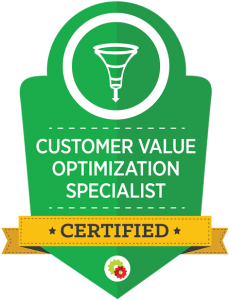Preparing for the Holiday Rush: Fall SEO Strategies to Get Ahead
As the fall season unfolds, businesses are gearing up for the busiest time of the year—the holiday rush. Whether you're an e-commerce store or a brick-and-mortar business with an online presence, the holiday season presents a massive opportunity to capture sales, increase traffic, and build brand loyalty. However, the key to capitalizing on this period is preparing early, especially when it comes to your SEO strategy. The competition intensifies as Black Friday, Cyber Monday, and holiday shopping approach, so optimizing your website in the fall ensures you’re ahead of the game when consumers are ready to spend.
This detailed guide will explore essential fall SEO strategies to prepare your business for the holiday rush, focusing on keyword research, content creation, technical SEO, and user experience improvements.
As consumer behavior shifts in the lead-up to the holiday season, businesses must adjust their digital marketing and SEO strategies accordingly. Shoppers are on the lookout for gift ideas, holiday deals, and seasonal products, which makes fall the ideal time to start optimizing your site for relevant search queries. By focusing on SEO early in the fall, you give your website time to rank in search results and create a seamless experience for customers during high-traffic shopping periods.
Implementing fall SEO strategies now allows your site to gain the visibility it needs to capitalize on increased consumer demand, resulting in higher rankings, more traffic, and ultimately, more sales.
Why Fall SEO Preparation is Crucial for the Holiday Season
The fall season serves as a prelude to the holiday shopping surge, which peaks in late November and December. By optimizing your site in the fall, you can ensure that your site is positioned to take advantage of the traffic boost during key shopping events. Here’s why preparing your SEO strategy early is so important:
- Increased Competition: The holiday season is highly competitive, and businesses across industries ramp up their digital marketing efforts. Fall SEO preparation helps you stay ahead of competitors by ensuring your site ranks for holiday-related searches.
- Holiday Traffic Surge: Consumers start searching for holiday deals and gift ideas as early as October. Optimizing for seasonal keywords now ensures you capture that early traffic and gain momentum heading into peak shopping periods.
- Long-Term SEO Gains: SEO takes time to show results, so optimizing in the fall sets you up for success when holiday searches reach their peak. Search engines reward sites with a solid track record, so consistent optimization efforts will benefit your rankings.
- Better User Experience: A well-optimized website offers a better user experience, which can reduce bounce rates, increase conversions, and boost overall customer satisfaction during the holiday rush.
Fall SEO Strategies to Get Ahead for the Holiday Rush
To ensure your site is prepared for the holiday season, it’s important to implement a mix of keyword optimization, content creation, technical SEO improvements, and user experience enhancements. Here are the top fall SEO strategies to get you ahead for the holiday rush.
1. Conduct Holiday-Focused Keyword Research
Keyword research is the foundation of any SEO strategy, and it’s even more critical during the holiday season. Consumers will be searching for holiday deals, gift guides, and seasonal products, and you need to ensure that your website ranks for those relevant queries.
How to Find Holiday Keywords
- Use Keyword Research Tools: Leverage tools like Google Keyword Planner, SEMrush, and Ahrefs to find holiday-related keywords with high search volume. Look for terms like “Black Friday deals,” “holiday gift ideas,” “Christmas sale,” and “Cyber Monday discounts.”
- Long-Tail Keywords: Long-tail keywords are more specific and tend to have lower competition. These might include phrases like “best Black Friday deals on laptops” or “holiday gifts for tech lovers.” Long-tail keywords also better capture user intent, which can lead to higher conversions.
- Analyze Competitor Keywords: Research what seasonal keywords your competitors are targeting. Use tools like SpyFu or SEMrush to uncover competitor strategies and identify keyword gaps you can target.
Focus on Seasonal Keywords
Seasonal keywords experience a surge in search volume during specific times of the year. Fall is when holiday-related searches start to increase, so optimize for keywords that reflect upcoming shopping events:
- Black Friday and Cyber Monday Keywords: Optimize for terms like “Black Friday 2023 deals,” “best Cyber Monday sales,” and “holiday shopping discounts.”
- Holiday Gift Keywords: Target keywords that consumers use when searching for gifts, such as “holiday gift ideas,” “Christmas gifts for him/her,” or “stocking stuffers under $50.”
- Event-Specific Keywords: Don’t forget other fall events that lead up to the holidays, such as “Thanksgiving dinner recipes” or “Halloween costumes 2023.” These keywords help capture early fall traffic before the holiday rush.
2. Create Holiday-Themed Content
Content is one of the most effective ways to capture search traffic, especially during the holiday season. Creating relevant, timely, and valuable content can attract consumers who are searching for holiday-related products, deals, and ideas.
Holiday Blog Posts and Guides
Blog posts, articles, and guides are excellent tools for building organic traffic. They provide answers to common questions and offer solutions to holiday shopping challenges.
- Gift Guides: Create holiday gift guides like “Best Gifts for Tech Enthusiasts in 2023” or “Top 10 Christmas Gifts for Her.” These guides help consumers navigate their holiday shopping and often rank well for gift-related searches.
- Holiday Shopping Tips: Write blog posts that help customers prepare for the holiday season, such as “How to Find the Best Black Friday Deals” or “Holiday Shopping Tips for 2024.”
- Product Comparisons: Create content that compares holiday deals, such as “Best Black Friday Deals on Smartphones vs. Laptops.” These types of posts rank well for consumers making purchasing decisions.
Holiday-Specific Landing Pages
Create dedicated landing pages for your holiday promotions, deals, and product collections. These pages should be optimized with holiday-related keywords and designed to drive conversions.
- Black Friday and Cyber Monday Pages: Set up separate landing pages for Black Friday and Cyber Monday deals early in the fall to ensure they rank by the time holiday traffic peaks.
- Holiday Product Collections: Feature holiday-themed product collections like “Top Christmas Decorations” or “Winter Fashion Trends 2023” to help guide consumers toward seasonal products.
3. Optimize for Mobile Shopping
As mobile commerce (m-commerce) continues to grow, optimizing your e-commerce site for mobile shoppers is critical, especially during the holiday season when consumers are often browsing deals and making purchases on their smartphones.
Mobile Optimization Checklist
- Responsive Design: Ensure that your website has a responsive design that adjusts seamlessly to different screen sizes. This improves the mobile shopping experience and boosts your mobile SEO performance.
- Faster Load Times: Mobile users expect fast-loading pages, especially when shopping online. Use tools like Google PageSpeed Insights to identify issues and optimize for faster mobile load times by compressing images, minifying code, and using browser caching.
- Streamlined Checkout: Make the checkout process quick and easy for mobile users by offering mobile-friendly payment options like Google Pay or Apple Pay. Reduce the number of steps needed to complete a purchase to minimize cart abandonment rates.
4. Improve Technical SEO for High Traffic
With the influx of traffic expected during the holiday season, it’s essential that your website is technically optimized to handle the increased load. A well-performing site ensures that visitors have a seamless experience, which can help improve your rankings and increase conversions.
Enhance Site Speed and Performance
Slow-loading websites can deter potential customers and lead to higher bounce rates. In preparation for the holiday rush, focus on optimizing your site’s speed and performance.
- Use a Content Delivery Network (CDN): A CDN helps distribute your website’s content across multiple servers, reducing load times for visitors regardless of their location.
- Minimize HTTP Requests: Reduce the number of HTTP requests by combining files, minimizing the use of third-party scripts, and optimizing images.
- Implement Lazy Loading: Lazy loading delays the loading of non-critical images and content until the user scrolls down the page, improving initial load times and overall user experience.
Ensure Your Site Can Handle Traffic Spikes
The holiday season often brings traffic surges, especially on key shopping days like Black Friday and Cyber Monday. Make sure your hosting provider can accommodate the increased traffic to prevent your site from crashing or slowing down.
- Upgrade Hosting Plan: If you expect a significant traffic spike, consider upgrading to a higher-tier hosting plan that offers more bandwidth and faster server response times.
- Monitor Site Health: Use tools like Pingdom or Uptime Robot to monitor your website’s uptime and performance, ensuring your site stays online during peak shopping times.
5. Strengthen Internal Linking and Navigation
Internal linking helps search engines understand the structure of your website, improves crawlability, and distributes page authority. It also enhances user experience by guiding visitors to relevant content and products.
Internal Linking Strategy for the Holidays
- Link to Holiday-Specific Pages: Add internal links from your blog posts and product pages to your holiday landing pages. For example, link from a gift guide blog post to specific product pages or deals.
- Use Descriptive Anchor Text: When linking internally, use keyword-rich, descriptive anchor text that reflects the content of the page you’re linking to. For example, instead of “click here,” use “shop Black Friday deals on electronics.”
Optimize Navigation for the Holiday Season
As you prepare for the holiday rush, simplify your site’s navigation to make it easier for visitors to find holiday-specific content and products.
- Add Seasonal Categories: Create seasonal product categories such as “Holiday Gifts,” “Winter Apparel,” or “Black Friday Deals” in your main navigation menu.
- Use Search Filters: Add holiday-themed search filters that allow users to narrow down their options based on price, category, or promotions. This helps shoppers find what they’re looking for quickly.
6. Boost Your Local SEO Efforts
If your business has a local presence, optimizing for local search is critical, especially during the holiday season when consumers search for nearby stores, holiday events, and in-person promotions.
Local SEO Strategies for the Holidays
- Optimize Google My Business: Ensure that your Google My Business profile is up to date with holiday hours, seasonal promotions, and accurate location information. Add holiday-specific keywords to your business description and use festive images to attract attention.
- Target Local Keywords: Incorporate local holiday-related keywords into your content and meta tags, such as “holiday shopping in [city]” or “Christmas events near [location].”
- Create Local Event Pages: If you’re hosting or participating in local holiday events, create landing pages optimized for local SEO. Include event details, dates, and directions to your store or location.
7. Implement Structured Data for Holiday Shopping
Structured data, or schema markup, helps search engines better understand your content and enhances your visibility in search results by displaying rich snippets. Rich snippets can show details like product ratings, prices, and availability directly in search results, which can improve click-through rates.
Use Schema Markup for Holiday Sales
- Product Schema: Implement product schema on your product pages to display important details like pricing, availability, and reviews. This is especially useful for Black Friday and Cyber Monday promotions, where consumers are looking for quick comparisons.
- Event Schema: If you’re hosting holiday events or offering special promotions, use event schema to highlight those in search results.
- Offer Schema: Add offer schema to your holiday deal pages to ensure that Google displays information about discounts, limited-time offers, and coupons.
8. Monitor and Adjust Your Holiday SEO Strategy
SEO is an ongoing process, and it’s essential to monitor the performance of your holiday SEO efforts throughout the season. Make adjustments as needed based on data and trends.
Track Key SEO Metrics
- Keyword Rankings: Use tools like SEMrush or Ahrefs to track the performance of your holiday-related keywords. Adjust your strategy if certain keywords aren’t ranking as expected.
- Organic Traffic: Monitor your organic traffic through Google Analytics to see how your holiday content and landing pages are performing. Look for spikes in traffic around key events and holidays.
- Conversion Rates: Track conversion rates on your holiday-specific landing pages. If you notice low conversion rates, consider optimizing your CTAs, improving page design, or offering additional incentives like free shipping or limited-time discounts.
Common Mistakes to Avoid During Holiday SEO Preparation
As you prepare your SEO strategy for the holiday rush, avoid these common mistakes that can limit your success:
- Starting Too Late: SEO takes time to show results, so don’t wait until November to start optimizing for the holidays. Begin implementing your fall SEO strategies in late summer or early fall to give your content time to rank.
- Neglecting Mobile Optimization: With the rise of mobile shopping, neglecting mobile optimization can result in lost sales. Ensure your site is mobile-friendly, fast-loading, and easy to navigate on smartphones.
- Ignoring User Experience: Even with the best SEO strategy, a poor user experience can lead to high bounce rates. Focus on creating a seamless, enjoyable shopping experience that encourages conversions.
FAQs
When should I start preparing my SEO strategy for the holiday season?
You should start preparing your SEO strategy for the holiday season in the early fall (August to September). This gives your content and optimizations time to rank before the holiday shopping rush begins.
What are some effective holiday keywords to target?
Effective holiday keywords include terms like “Black Friday deals,” “holiday gift ideas,” “Cyber Monday sales,” and “Christmas gifts.” Also, focus on long-tail keywords such as “best holiday gifts for tech lovers” or “Black Friday deals on electronics.”
How do I optimize my website for holiday traffic spikes?
Optimize your website for holiday traffic by improving site speed, using a content delivery network (CDN), reducing the number of HTTP requests, and ensuring your hosting plan can handle increased traffic.
How can I create holiday-specific content to drive traffic?
Create holiday-specific content such as gift guides, shopping tips, product comparisons, and holiday event pages. Optimize these pages with seasonal keywords and promote them across your website and marketing channels.
Why is local SEO important for the holiday season?
Local SEO is crucial for attracting nearby shoppers who are looking for holiday events, in-store promotions, or local services. Optimizing your Google My Business profile and targeting local holiday keywords can help boost visibility for local search queries.
Conclusion
Preparing your SEO strategy for the holiday rush is essential for capturing the increased traffic and sales opportunities that come with the season. By starting early in the fall, conducting thorough keyword research, creating holiday-themed content, optimizing for mobile users, and ensuring your site can handle the surge in traffic, you’ll position your business for success during the busiest shopping months of the year. Stay proactive with your SEO efforts, monitor performance, and make adjustments as needed to ensure you maximize your visibility and conversions during the holiday season.











